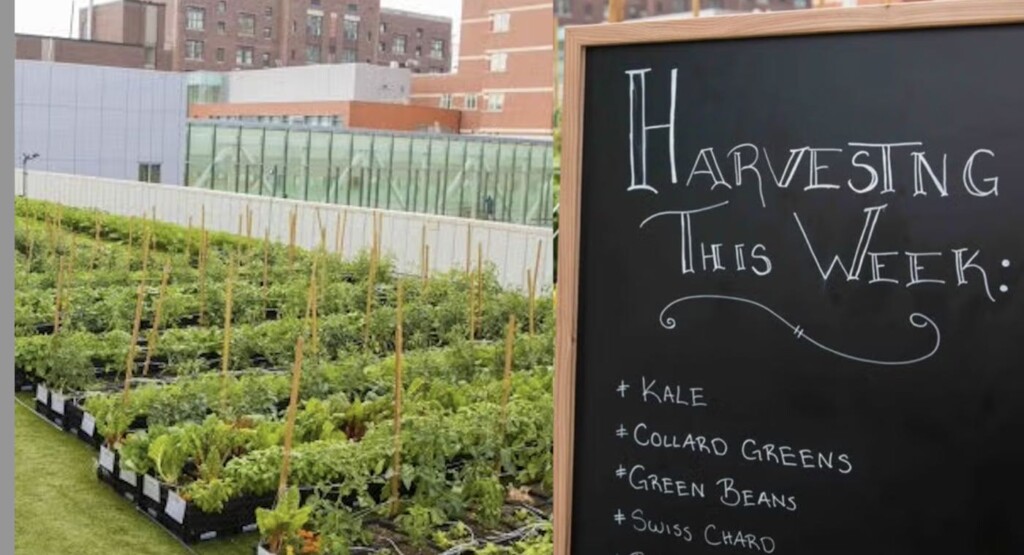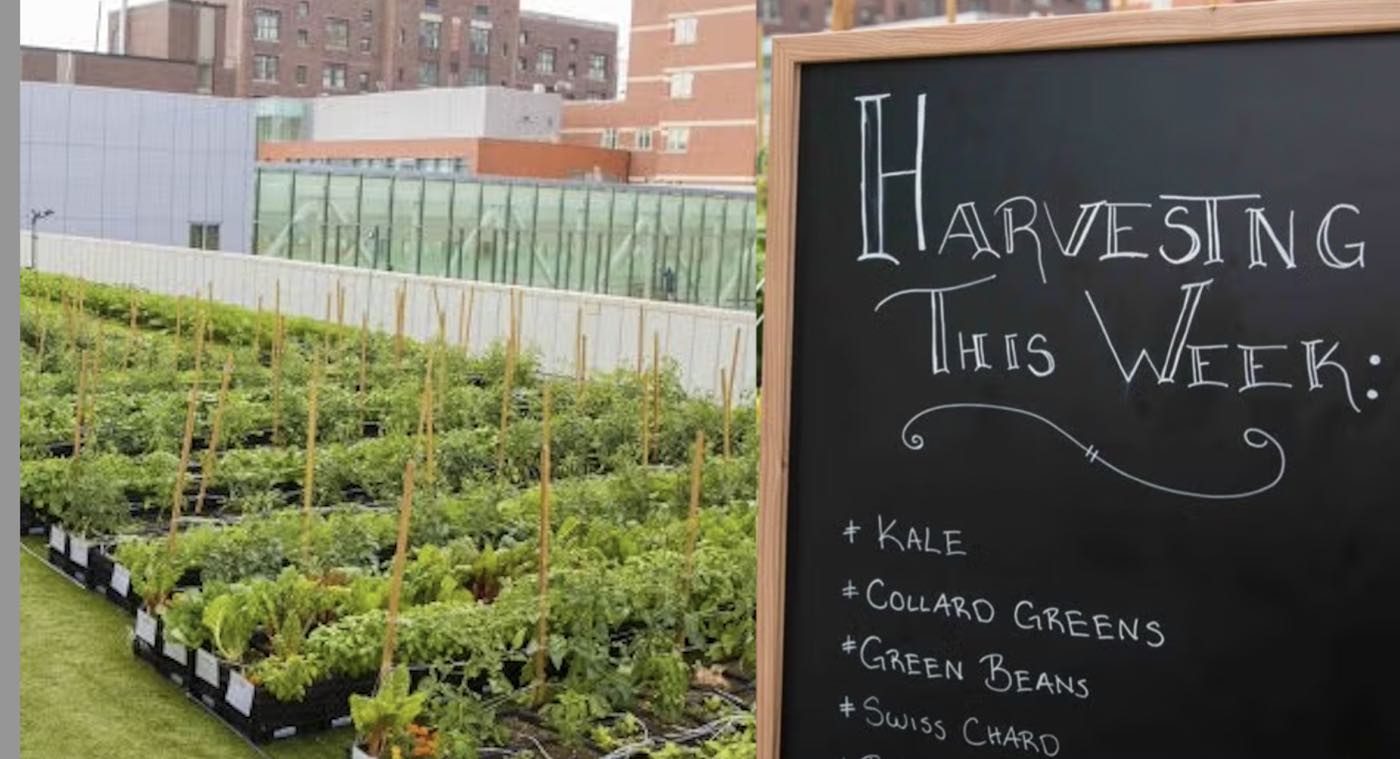
It’s a paradox found all over the world: why is it so common for hospital food to be essentially bad for you?
Tackling the problem head-on, Boston Medical Center—already one of the greenest hospitals in the nation—has opened two large rooftop gardens, giving patients and physicians alike access to fresh food while adding green space to the hospital campus.
BMC had one rooftop garden through which it supplied fresh foods to its cafeteria and inpatient catering, but now a second one, utilizing the ample rooftop space of the hospital campus, is also able to provide fresh foods to underserved communities, cementing the BMC as a place of healing, whether through a shot in the arm, or a vibrant kale salad.
Through a partnership with Boston Area Gleaners, fruits and vegetables cultivated in the 4,915-square-foot grow space will be distributed to local non-profits and community centers twice weekly during the growing season, addressing food insecurity and increasing access to essential fresh foods across Boston.
Called the ‘Newmarket Farm,’ it triples the total grow space at BMC and quadruples the amount of produce BMC expects to grow annually. The new garden will specialize in growing vegetables, including collard greens, kale, and arugula, as well as culturally relevant crops including Aji Dulce peppers, bok choy, and callaloo.
It will also advance BMC Health System’s commitment to sustainability. The green space reduces heat-absorbing pavement in the community and slows stormwater runoff impact, as plants directly collect and retain rainwater. The garden operates while reducing water waste through high-tech irrigation that waters the crops directly at the root.
ROOFTOP GARDENING: Rooftop Forest Planned for London Courthouse Includes 100 Trees, 10,000 Plants, and Much More
“Our rooftop farms increase green space in our community, reduce the hospital’s carbon footprint, and strengthen at-risk local food systems. We are proud to expand fresh food availability in the local community while adding more pathways to support critical clinical programs, like the Preventive Food Pantry, in our hospital,” said David Maffeo, Senior Director of Support Services at BMC.
“The Newmarket Farm models how hospitals can further invest in the health of our communities while building environmentally resilient spaces.”
BMC actually has a program called Food Is Medicine, which works with a local grocer to craft labeling formats that speak directly to citizens’ disease risks and/or desire for knowledge about better nutrition.
OTHER STORIES LIKE THIS: Spain’s Olive Oil Producers Turn Tons of Their Pits into Fuel–For Homes, Planes and Industry
For example, food items that may help control blood sugar are expressed as being better for diabetics on the packaging, or foods that may help lower blood pressure are labeled as being potentially heart-healthy.
The cultural diversity of the city has seen the labeling materials printed in a variety of languages, from Vietnamese to Haitian-Creole.
SHARE This Story Of A Hospital Practicing What Its Doctors Preach…




















